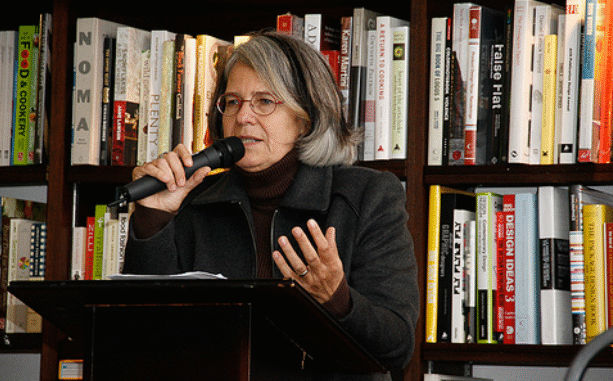
Antjie Krog is a South African poet, writer, and journalist. She is known for her work on apartheid, reconciliation, and social justice. Her writing is emotional, reflective, and deeply rooted in South African life. Krog gives a voice to truth, memory, and the experiences of ordinary people.
Early Life
Antjie Krog was born in 1952 in Kroonstad, Free State, South Africa. She grew up speaking Afrikaans. She studied Afrikaans and English literature at the University of the Free State. Her education and upbringing shaped her commitment to language, culture, and social issues.
Literary Beginnings
Krog started publishing poetry in the 1970s. Her early work explored identity, language, and apartheid. She gained attention for blending personal and political themes. Her poetry was direct, honest, and emotionally charged.
Major Works
-
Dogter van Jefta (1982) – Early poetry collection; personal and political themes.
-
Country of My Skull (1998) – Non-fiction account of the Truth and Reconciliation Commission (TRC).
-
A Change of Tongue (1991) – Poetry exploring language and identity.
-
Begging to be Black (2009) – Reflections on race, identity, and society.
-
Colours of Humanity (2011) – Poems about human experiences and reconciliation.
-
Mede-wete (2014) – Poetry exploring memory and moral responsibility.
Dogter van Jefta (1982)
Krog’s early poetry explored personal life and South African society. It combined lyrical beauty with political awareness. The poems reflected her voice as a socially conscious poet.
Country of My Skull (1998)
A major non-fiction work documenting the TRC hearings. It records testimonies of victims and perpetrators of apartheid crimes. The book blends journalism, memoir, and poetry. It is considered essential reading for understanding South Africa’s reconciliation process.
Begging to be Black (2009)
Krog explores racial identity and the ongoing effects of apartheid. She writes with honesty and critical insight. The work combines personal reflection with social commentary.
What Makes Her Different
-
Combines poetry, journalism, and memoir.
-
Focuses on truth, reconciliation, and human experience.
-
Writes in Afrikaans and English, reaching diverse audiences.
-
Boldly addresses apartheid and post-apartheid challenges.
-
Blends personal voice with political awareness.
Krog’s writing is emotional, honest, and socially engaged.
Who Reads Her
-
Students and scholars of South African literature and history.
-
Readers interested in apartheid, reconciliation, and human rights.
-
Poetry enthusiasts seeking lyrical and socially conscious work.
-
Global audiences exploring post-apartheid society.
Her readership values insight, honesty, and moral reflection.
Collaborations and Influence
-
Worked with journalists, historians, and writers on TRC-related projects.
-
Influenced a generation of South African poets and essayists.
-
Collaborated with musicians and artists to bring poetry to new audiences.
Her influence spans literature, journalism, and cultural activism.
Activism and Cultural Role
Krog played a central role in documenting truth and reconciliation in South Africa. She gives voice to victims, survivors, and ordinary people. Her work encourages reflection, empathy, and social awareness. She advocates for accountability, memory, and cultural understanding.
Later Years and Legacy
Antjie Krog continues to write and lecture internationally. She has won multiple awards for poetry, non-fiction, and journalism. Her work remains central to studies of South African literature and social justice.
Legacy highlights:
-
Chronicler of apartheid and post-apartheid South Africa.
-
Leading South African poet and non-fiction writer.
-
Voice for truth, reconciliation, and memory.
-
Influencer of South African literary and cultural discourse.
Words
Antjie Krog is more than a poet. She is a voice of truth and moral reflection. Her writing captures human experiences, memory, and social justice. Her work combines art, activism, and empathy.
For anyone exploring South African literature, apartheid history, or social justice, Antjie Krog is essential reading.
Leave a Reply